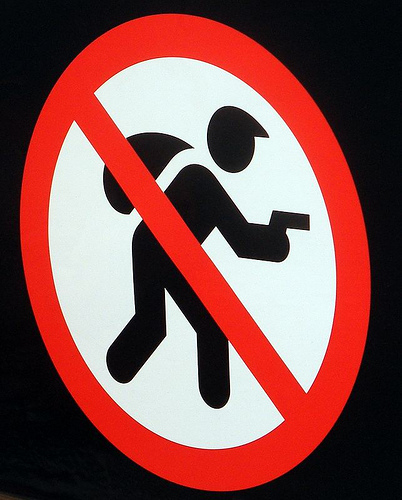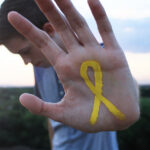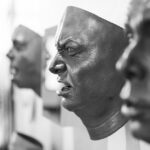He who does not prevent a crime when he can, encourages it. – Seneca

What are you willing to do to help stop a crime or help solve it afterwards? If you aren’t against the criminals, are you for them?
What does that mean?
This is the classic lesson from the origin of Spider Man. Whether from the comics or from the movies, Peter Parker (aka Spider Man) has the opportunity to stop a crime, but decides not to interfere. A short time thereafter, his uncle is shot and killed by the same thug.
That’s kind of harsh, but it is one of the ways the character of Peter / Spider Man is given his drive to fight crime whenever possible. But is makes it very clear that some people repeat their crimes over and over, until they are finally stopped.
The term for not stopping someone from doing something is “tacit approval” or saying that you don’t care enough to stop them. Whether from fear or apathy, the end result is the same. They do it, and you do not stop them. You have encouraged them. That’s not a good thing.
Why is daring to stand up to criminals important?
Let’s start with the obvious. If they are armed or you are in serious danger, don’t be stupid. This quote isn’t about getting killed or maimed. It is about doing something about the crime. It could be as simple as phoning in a tip or taking a picture or video recording. With today’s cell phones, it’s not difficult to do any of those things.
But few people start with armed robbery or murder. They usually start with much smaller, less dangerous crimes. If we can prevent or stop the crimes at that stage, there is a chance that they will either turn from that pattern of crime, or spend enough time locked away from society that the greater good is served.
Your actions, or lack thereof, may have little or no impact on you at that point, but there is always tomorrow. Who will be the next victim of crime? There are also trends. When taggers see a wall not cleaned promptly, they seem to come back more and more often, encouraged by the lack of action.
Where can I apply this in my life?
As an example, for a while in New York City, gang violence was rampant. It was assumed nothing could be done. Rudy Guiliani thought that an example could be made of anyone and everyone, and crime was prevented at every opportunity. While there were other theories as to why crime went down, The Mayor made New York City a hostile environment for criminals.
If your employer has an ethics training class, you’ve probably already dealt with some of these concepts already. Some of the scenarios might include the question “What if you see someone…”
- stealing office supplies?
- pilfering the refrigerator?
- leaving early, and someone else entering their time later?
We know how your employer expects you to answer those questions, but how would you react if you weren’t at work? What about every day scenarios? What would you do if you thought someone was shoplifting items at a grocery or department store? Take a moment and think about when you might or might not do something, and what you would be willing to do.
Recently, in Mexico, a mayor who had stood up to the drug cartels and fought against corruption and crime in her town, was found dead on the side of the road. She paid the price for standing up to the drug lords and their minions. However, if everyone stood up, the drug lords would lose.
That is the power of the people, and why criminals use fear to try to control the situation. Sadly, this brave lady lost her life for trying to stop crime while others, through inaction, encouraged it. However, others will step up, and eventually, things will return to normal.
Fortunately, most of us don’t live in places where preventing crime, whether directly or indirectly, is likely to cost us our lives. However, we must be careful, as there are no ‘save games’ or do-overs. Do what you can, when you can, but you have an obligation to your health and well-being as well.
But, as a member of society, we have certain obligations to each-other. If the thieves and robbers knew they were taking on a whole neighborhood, they might think twice before trying to mug someone, right? That is the point, just like early tribes banded together against the wolves and other predators.
We haven’t even touched the issue of just and unjust laws, and how our values and perceptions feed into how we classify them. But if we see harm being done to another person, or that which is theirs, I believe we have an obligation to render assistance.
If we do nothing, not only have we not prevented the crime, but we have emboldened the criminal, who just got away with their crime. That’s not a good feeling for those of us who try to obey the laws and do good instead of harm.
From: Twitter, @philo_quotes
confirmed at : http://www.brainyquote.com/quotes/quotes/l/luciusanna122586.html
Photo by Arenamontanus






